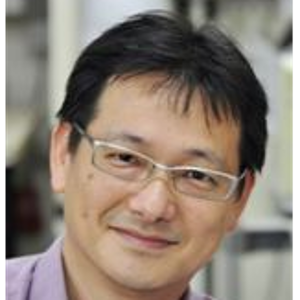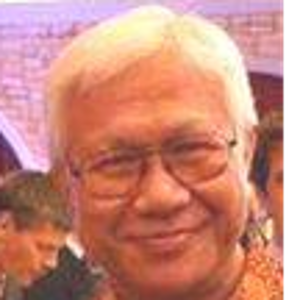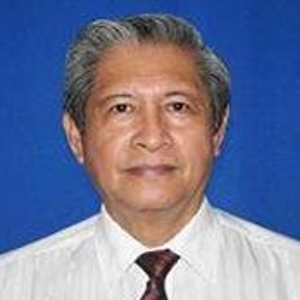
Teresa Lo Yee Yii
Programme Leader, ASEAN Food and Beverage Alliance (AFBA)【Topic】Trade Impact of Non-Harmonised Nutrition Labelling on Prepackaged Food in ASEAN
【BIO Summary of Work Experience 】
Teresa leads the ASEAN Food and Beverage Alliance (AFBA), a network of food & beverage national associations in Southeast Asia with the core objective to facilitate intra- and extra-regional trade in ASEAN by supporting and accelerating the ASEAN harmonisation process. Teresa manages the workstream on the harmonisation of food trade standards, through the monitoring of regulatory developments and the facilitation of relevant research projects and agendas. Prior to joining AFBA, Teresa served as an in-house regulatory specialist with KH Roberts Pte Ltd, focusing on the use of flavourings and additives in key Southeast Asian markets. She also has experience in halal and kosher certification schemes. Teresa is originally from Malaysia, and graduated from the National University of Singapore (NUS) with a degree in Applied Science, majoring in Food Science and Technology.
【PPT Abstract】
The non-harmonisation of nutrition labelling has been identified as one of the top technical barriers to trade in ASEAN, according to a survey conducted within the food & beverage industry in 2013. A study was initiated by AFBA to evaluate the impacts of non-harmonised nutrition labelling on food businesses in the ASEAN market and to recommend measurable interventions at the macro- and micro-levels, so as to facilitate the removal of these barriers and to open intra-ASEAN trade for the prepackaged food and beverage sector.

Adhi Lukman
Chairman, GAPMMI, Indonesia【Topic】Outlook for the F&B market for 2019; what are the opportunities for growth for F&B manufacturers?
With experience in various seminars and trainings, both nationally and internationally, Adhi Lukman continues his career in industry, either of food or other industries.
Recognized internationally as an authority on the food industry, Adhi Lukman is the current Chairman of GAPMMI, the Indonesian Food & Beverages Association. In 2016, elected as President AFBA (ASEAN Food and Beverage Alliance).
In addition to his role with GAPMMI, Adhi Lukman works with several organizations, as Chairman of Permanent Committee for Development of Food Industry, Indonesian Chamber of Commerce & Industry (KADIN); Member of Working Team of Indonesia’s National Productivity Board (LPN); Member of Expert Working Group of National Food Security Council (DKP); Member of National Codex Committee; Coordinator Industrial and Government Relationship Division of The Indonesian Association of Food Technologist (PATPI); Member of Advisory Board PT SGS; Member of Impartiality Committee PT. TÜV NORD Indonesia; Member of Notification Body & Inquiry Point (TBT-WTO), National Standard Body (BSN); Advisory Board of Food Science & Technology Department, Faculty of Agricultural Technology , Bogor Agricultural University (IPB); Jury SNI Award (BSN); Jury Primaduta Award 2016, Ministry of Trade; Steering Committee of Standard Community (MASTAN/BSN); Member of Working Group on Acceleration Nutrition Improvement, Ministry of Development Planning / BAPPENAS; Member of Forum Communications Management and Development of Public Market (General Trade), Shopping Mall and Supermarket (Modern Trade), Ministry of Trade; Member of Working Group (3) Evaluation and Analysis Impact of Economic Policy, Ministry of Coordinating Economic of Republic Indonesia

Allan Lim
Chairman, Singapore Food Standard Committee【Topic】Development of food standards to support industry transformation and address emerging food trends
【BIO Summary of Work Experience 】
Dr Allan Lim started his career in industrial research at Nestlé R&D Center in Singapore in 1995 after obtaining his Ph.D from the Institute of Molecular and Cell Biology at National University of Singapore. In 2004-2008, Allan served as Research Manager, Acting-R&D Director and Senior Scientist at Kemin Industries, a US-based agrifood company, to manage the development of enzymes, toxin binders, probiotics and emulsifiers for the animal feed industry in the Asia Pacific region. Allan returned to Nestlé in 2008 for a new role in promoting innovation partnerships in the Asia-Pacific region. Since then, Allan has been instrumental in accelerating innovation through various models of open innovation. One of his biggest achievement is the establishment of strategic partnership with A*STAR (Agency for Science, Technology and Research) in Singapore, which allows Nestlé to collaborate across various scientific platforms.
At the national level, Allan supports Enterprise Singapore by serving as the Chairman of the Technical Committee on Edible Fats and Oil, and as a member of the Singapore Food Standards Committee since 2007. In addition, Allan also serves in the advisory boards of the Food Innovation & Resource Center (FIRC), Institute of Technical Education, Singapore Institute of Technology and Temasek Polytechnic.
Through his various engagements with the government, academia and industry, he sees many challenges and opportunities for the food industry. As Asian consumers are looking for foods that are healthy, natural, and produced sustainably, food manufacturers need to introduce new ingredients, processes and business models very quickly to fulfil these demands. This also implies that food manufacturers need to ensure that the whole value chain, from the farms to consumer is creating less carbon footprint. The rise of digital technologies and artificial intelligence is allowing technology companies and entrepreneurs to disrupt the way food manufacturers operate and engage with consumers, which forces food companies to innovate faster.
【PPT Abstract】
Singapore is strategically located in the heart of Southeast Asia and between India and China. Despite being the one of the smallest countries in Asia, Singapore has played significant role in trade since its discovery and more recently in education, R&D and politics. Despite the fact that Singapore imports more than 90% of food and raw materials, Singapore’s food industry has been growing steadily, contributing to US$10.6 billion and supported 296,400 jobs in 2017. On the other hand the dependence on imported food and raw materials also exposes Singapore to changes in regional and global climate, politics and economy.
The Singapore Food Standards Committee (FSC) was established in the 70s to protect the budding food industry. In recent years, FSC has revamped its portfolio of standards and aligned standard development with Singapore’s economic strategy and consumer interests such as food security, food safety, and functional foods.

Mr. Kenneth Whitaker
General Manager ASEAN, Detpak / Detmold Group【Topic】Key trends that drive the future of packaging
【BIO Summary of Work Experience 】
Ken Whitaker is the Regional General Manager Sales Asia at Detmold Group, managing the overall strategy and Sales operations of a regional business unit spread out over five offices. Ken’s emphasis on people development is geared towards creating an inspired and passionate collection of individuals working for a common goal – providing superior paper and board packaging for our esteemed customers.
Ken has been in Asia for 18 and has lived and worked in Kuala Lumpur, Shanghai, Hong Kong and Singapore-twice. Prior to joining Detmold, he was Asia Pacific Managing Director for TCC, the world’s leader in retail loyalty marketing programs. Ken led his team to exceptional revenue and profit growth by significantly adding retail partners in critical markets, namely China and Australia.
He also spent 29 years in the FMCG sector, 13 of those in Asia, leading multiple teams and business units across various geographies to achieve profitable growth exceeding initial projections. Throughout Ken’s business journey he has spoken at many Industry events, has hosted travelling executive MBA students and presented market overviews and case studies to them and has been invited to participate on many panel discussions.
Ken is originally from Vancouver, British Columbia. He holds a Bachelor of Arts degree in Psychology from the University of British Columbia.

Massimo Reverberi
Founder, Bugsolutely【Topic】Edible insects in packaged goods
【BIO Summary of Work Experience 】
Born and raised in Milan, Italy, Massimo got a degree in Political Science and in 1996 founded Prima Pagina, a PR and digital communication agency. After 17 years managing the company and a great team of marketing professionals, Massimo moved to South East Asia, looking for new challenges. He found the best ones in Asia, with Bugsolutely Thailand, which produces the unique Cricket Pasta, and Bugsolutely China, maker of the first silkworm powder-based snack in the world, Bella Pupa.
He is a co-founder of Woven Network, then British edible insect association, and AFFIA, the asian Association of bugs as food and feed.

David Christian
Co-Founder, Evoware (Indonesia)【Topic】Importance of circular economy

Henky Wibawa
Executive Director, Indonesian Packaging Federation (IPF)【Topic】Sustainable Packaging in the Food Industry
【BIO Summary of Work Experience 】
Henky Wibawa serves as Indonesian Packaging Consultant and
Executive Director of Indonesian Packaging Federation based in
Jakarta. He has more than 30 years of experience in market and
business development and research across the packaging
manufacturing industries: Argha Karya PI, VAW Europack, Alcan
Flexipack, Amcor Flexibles Indonesia.
Henky studied and graduated as Electrical Engineer from Ruhr-
Universitaet Bochum, Germany

Ee Lin Chew
Market Development Manager for Southeast Asia, Australia & New Zealand, Packaging and Specialty Plastics, Dow Chemical【Topic】Making Flexible Packaging More Sustainable
【BIO Summary of Work Experience 】
Ee Lin is the Market Development Manager for Southeast Asia, Australia & New Zealand, Packaging and Specialty Plastics at Dow. She leads the market development of Solution Polyethylene and Specialty Plastic in SEA/ANZ region to drive business growth.
Before being appointed to this role, she was the Market Development Manager for Dow Adhesives in South Asia from 2014 to 2017.
Drive Dow Adhesives market development activities, create new innovative programs from identified growth opportunities in the market place.
Prior to joining Dow, she was with Brady Corporation Asia Pacific for three years as product manager driving printing and converting solutions into the market place and 3M Asia Pacific for six years as senior application and development engineer in the specialty chemical business.
She holds a first class honours degree in Applied Science from the National University of Singapore.
【PPT Abstract】
Asia Pacific is the largest region for flexible packaging globally accounting for over 50% of global demand with a 6% growth rate. While the growth has been driven by the rising consumerism and demand of packaged food, challenges still remain on improving the end-of-life value of the post-consumer packaging.
Learn how Dow solutions can help address some of these challenges and bring more flexible packaging waste back into the circular economy in this talk.

Suryo Wiratno
Sr. Consultant, Tridaya Prima Artha【Topic】Halal Issues and its concern
【BIO Summary of Work Experience 】
- QA / R&D Sr. Manager for A&W Restaurant Indonesia. Internal Auditor Coordinator for Halal Assurance Management (2010 – 2017)
- F&B Manager for Sushi Tei Indonesia. Internal Auditor for HACCP (2007 – 2009)
- QA Manager for Sushi Tei Indonesia. Internal Auditor for HACCP (2007 – 2009)
- Associate to QA Manager for Makro Wholesaler. Auditor for ISO 9001:2008 (2005 – 2006)
- PDQA Project Officer for KFC Indonesia
【PPT Abstract】
Year of 2019 is the new Era of Halal implementation in Indonesia. Next year – Indonesia Regulatory will start to formalize Halal from Voluntary to Mandatory standard in food industry, both for Manufacturers and Culinary. For whom who already holds this standard, the next challange would be to update and upgrade this standard to the updated one. But for whom who did not hold the Halal standard yet. This would be a big challange. The next challange would be on Consumer, Market and Regulatory sides.
There are some issues to be overcame, we can not only see those issues in a challange in implementation but also in a management system approach to mitigate the impact. One thing for sure, “All parties must Ready to change”

Dr. Jose C. Gatchalian
Chairman, Quality Partners Co., Ltd【Topic】Engaging The Workforce Towards Sustaining Food Safety
【BIO Summary of Work Experience 】
DR. JOSE C. GATCHALIAN, Former Dean and Professor of the University of the Philippines' (U.P.) School of Labor and Industrial Relations. H is President Emeritus of the Philippine Industrial Relations Society (PIRS), and was once a member of the Executive Committee of the International Industrial Relations Association (IIRA). He obtained his PhD, M.A. and A.B. degrees from U.P., his M.S.S. degree and a Dipl. in Labor and Industrial Relations from the Netherlands Institute of Social Studies, and specialized courses at the ILO Turin Centre in Italy and at the Harvard University Business School in Boston, U.S.A He was a recipient of the Sikap-Gawa Industrial Peace Award of the Businessmen-Bishops Conference (BBC); He received the Professional Achievement Award from U.P. College of Mass Communication and a “Distinguished Alumni in Labor Management Cooperation for Industrial Peace and Harmony,” award from the U.P. Alumni Association. He had been speaker in various international Congresses such as the European Organization for Quality (EOQ) in Prague, Czech Republic, Budapest, Hungary Istanbul, Turkey; the American Society for Quality (ASQ) in Toronto and Colorado, the Middle East Quality Association (MEQA) in Dubai and Iran

Elaine Q. Borazon
Assistant Professor, University of the Philippines-Diliman【Topic】 Innovation to Market- Marketing for Asia’s Functional Food & Beverage Manufacturers
【BIO Summary of Work Experience 】
Elaine Q. Borazon earned her PhD in Business Administration, MS in Management, and BS in Food Technology from the University of the Philippines-Diliman. She is currently a food safety management system, operations management, and research and development consultant of various food manufacturing companies in the Philippines, assisting them in their needs for product innovations, lean operations and food safety compliance. She currently teaches Operations Management, General Management, and Research Methods at the Department of Hotel, Restaurant, and Institutions Management of the College of Home Economics, University of the Philippines, Diliman. She is the president and CEO of BusinessBests InnovaCon, Inc., a consultancy firm for food enterprises.
【PPT Abstract】
The capability to bring innovation to market is a crucial determinant of a firm’s competitive advantage. Market survival and growth is also dependent on the the innovation process of the firm. Thus, strategies and strategic decisions about the markets, processes, and products that will lead to successful innovations and that will capture the market should be considered. Functional foods and beverages are gaining global prominence and their market potential is increasing. However, the product development process is challenging as there is a need for a better understanding of consumer preferences and behavior.

Myrna Benita Zamora Luna
Assistant Professor, College of Home Economics, University of the Philippines - Diliman【Topic】Biobased Food Packaging
【BIO Summary of Work Experience 】
Assistant Professor Myrna Benita Zamora-Luna is a faculty member at the Department of Food Science and Nutrition, College of Home Economics, University of the Philippines-Diliman. She primarily teaches food science and nutrition courses including food processing and food packaging, introduction to food preparation and a general education course on food trip. She has assisted various micro to medium scale food enterprises through various capacities for more than ten years. Prof. Zamora-Luna obtained her BS, MS and PhD degrees from the same University. Her research interests include food packaging and labeling, food safety, minimal food processing, indigenous food processing, and traditional knowledge.
【PPT Abstract】
Recent issues and concerns on sustainability have prompted the utilization and development of biobased food packaging materials. Specific examples of these materials include natural and synthesized packaging manufactured from agricultural feedstocks, animals, microorganisms and food processing wastes. Renewability, availability and environment-friendly nature of raw materials for biobased food packaging contribute to sustainability. As a food packaging material, the major constraints in their utilization including performance, processability and cost can be further improved. Currently, biobased materials are used for fast moving chilled food products. Potential application of these materials include minimally processed produce, eggs, and dairy products.